Drinking Water problem in Saudi Arabia, Causes and Impact on Health
Water Scarcity:
Saudi Arabia's arid climate and limited freshwater resources contribute to water scarcity. With low annual rainfall and high evaporation rates, the country faces challenges in meeting the demand for drinking water.
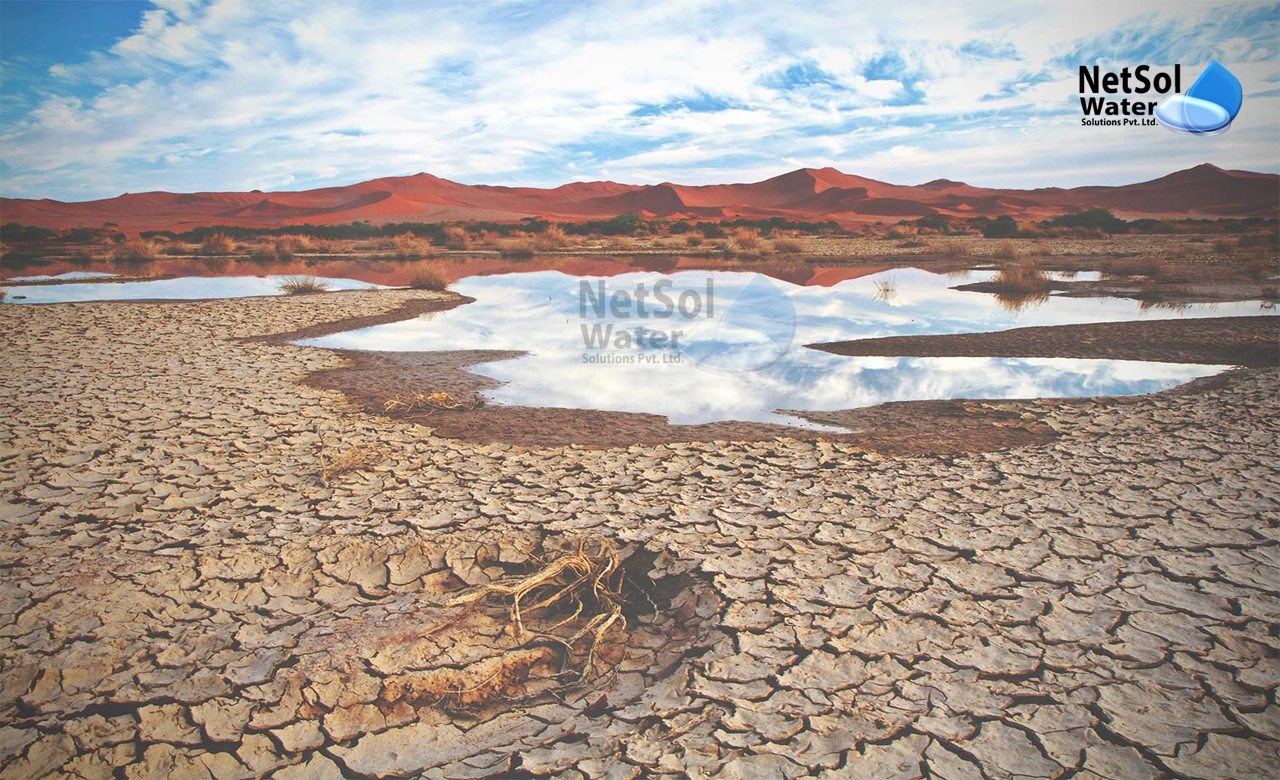
High Demand for Water:
Rapid population growth, urbanization, and industrial development have significantly increased the demand for water in Saudi Arabia. The combination of a rising population and expanding economic activities puts stress on existing water supplies.
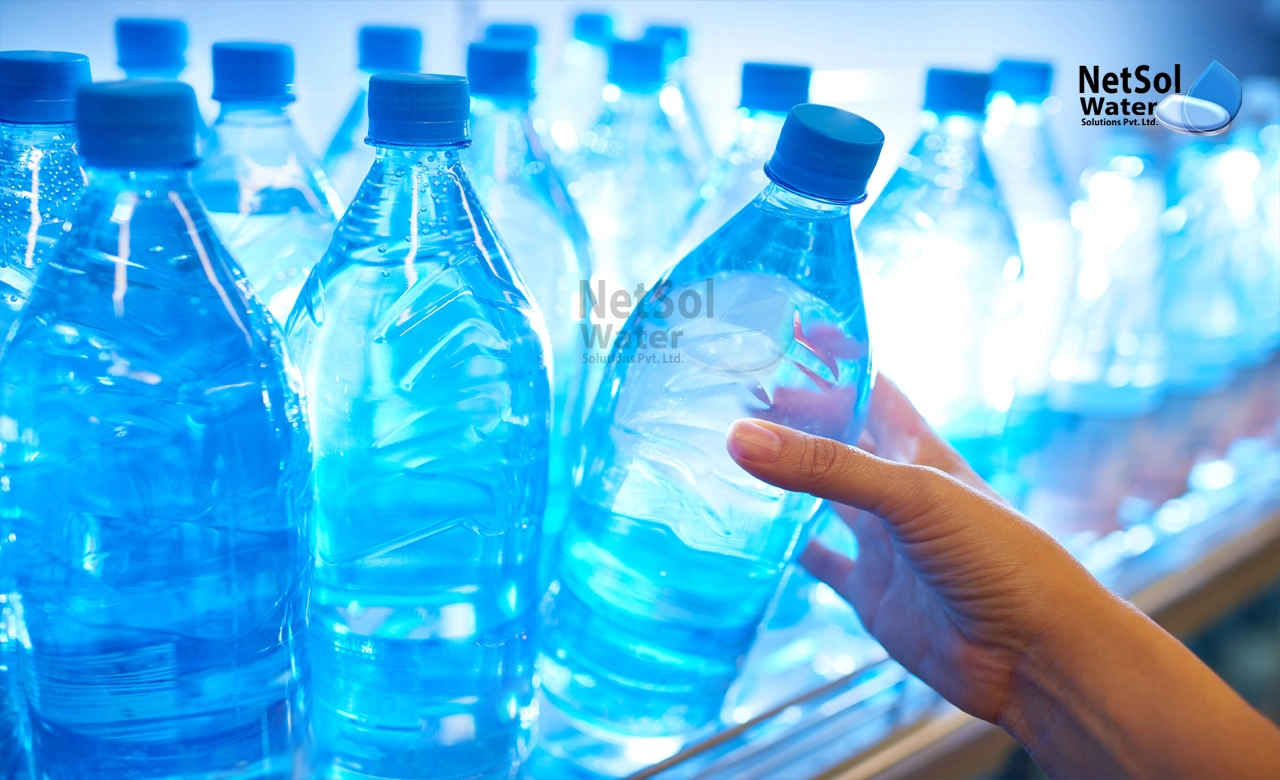
Over-Extraction of Groundwater:
Groundwater has historically been a crucial source of drinking water. However, excessive extraction for agricultural and domestic purposes has led to the depletion of aquifers and a decline in groundwater quality, impacting its suitability for drinking.
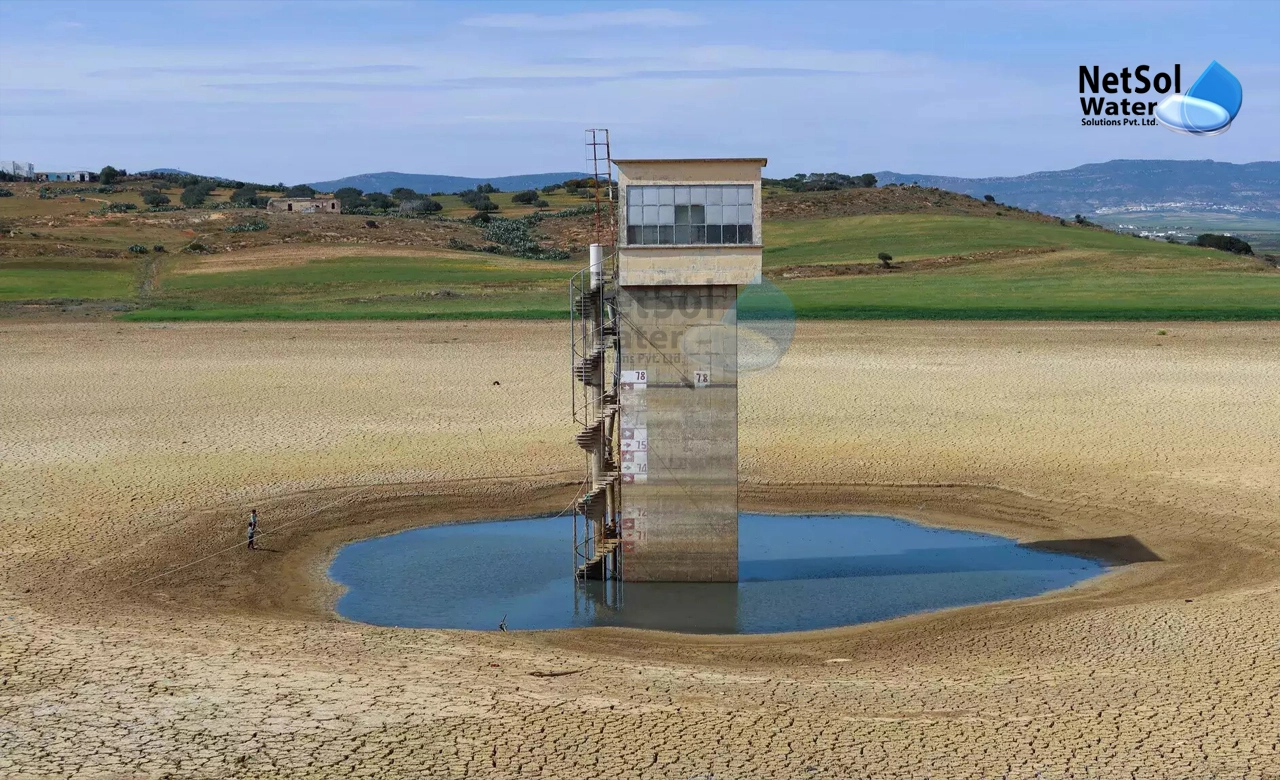
Limited Surface Water Sources:
Saudi Arabia has minimal surface water sources, such as rivers and lakes. This scarcity necessitates alternative water supply methods, and reliance on these sources may pose challenges in ensuring a consistent and reliable drinking water supply.
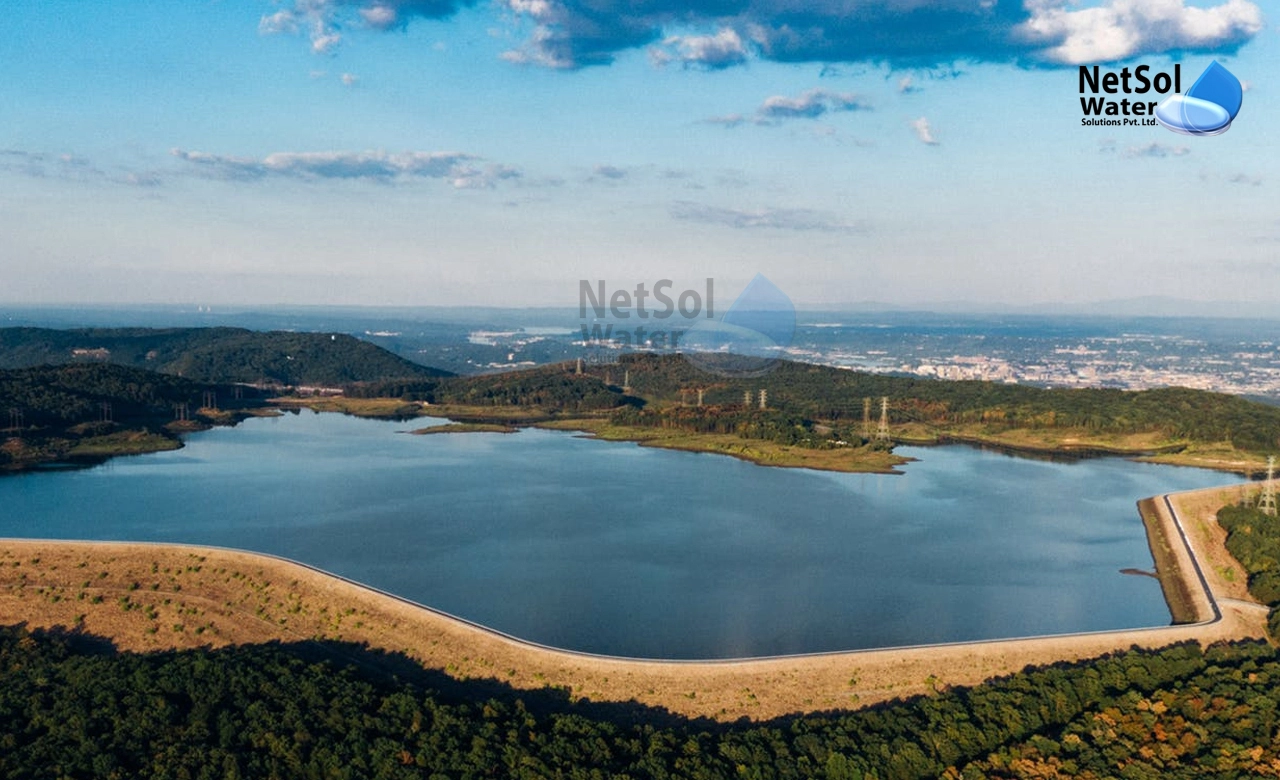
Desalination Challenges:
Desalination of seawater has become a significant source of drinking water. However, the desalination process is energy-intensive and expensive. The reliance on desalination, while crucial for meeting water demands, poses challenges in terms of cost and sustainability.
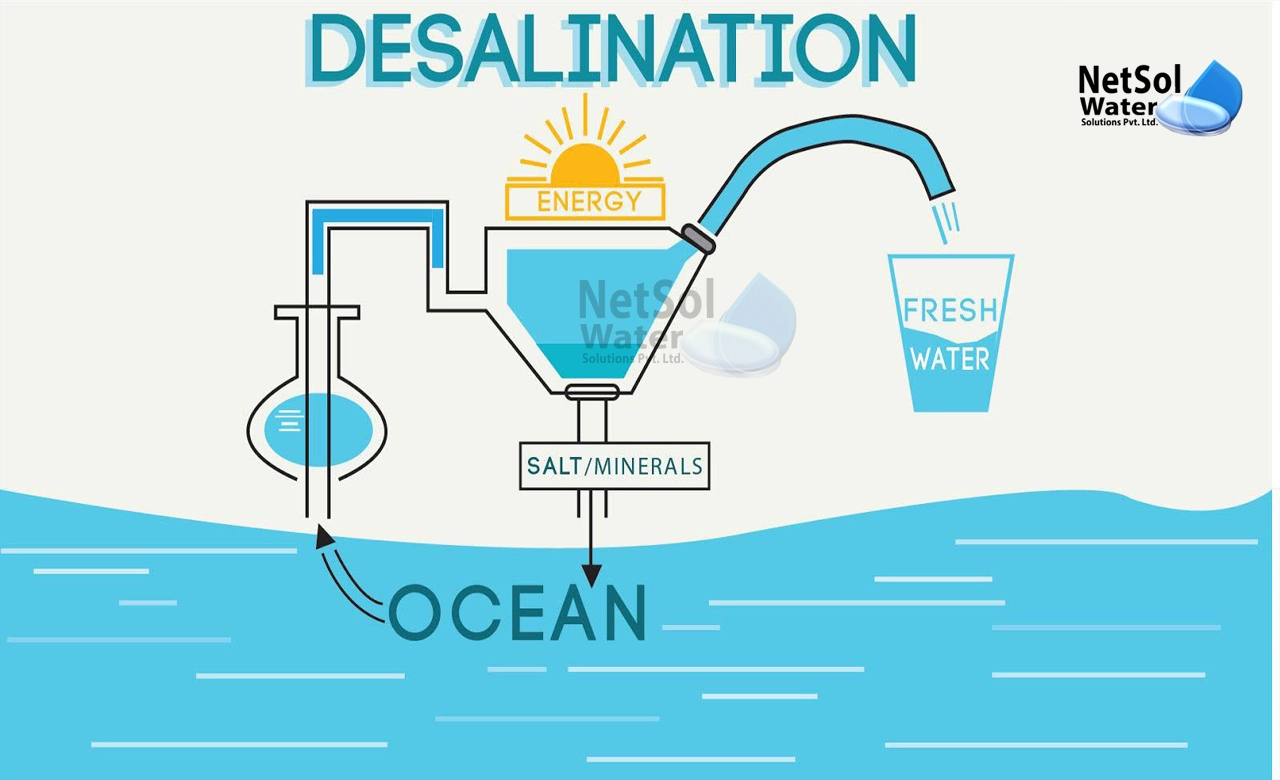
Water Pollution:
Industrial discharges, agricultural runoff, and inadequate waste disposal contribute to water pollution. Pollutants such as chemicals and heavy metals contaminate water sources, impacting both quality and safety for consumption.
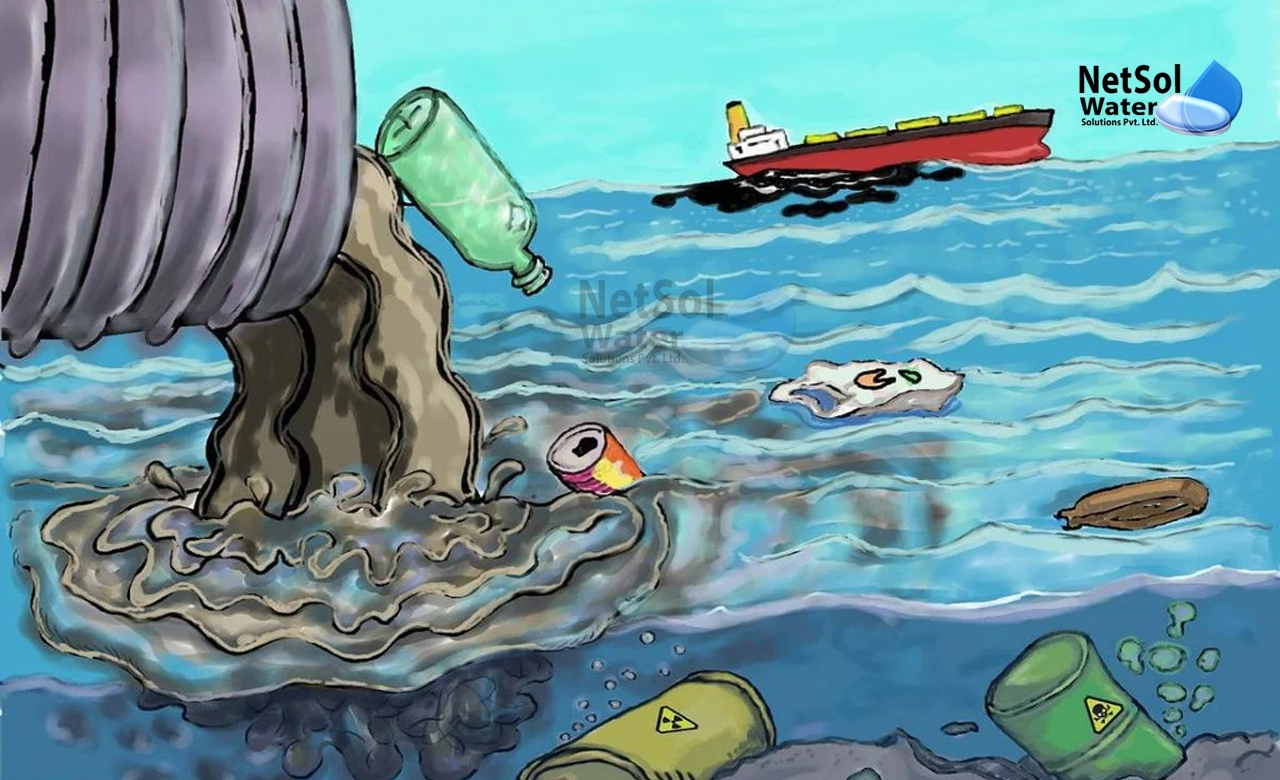
Impact on Health:
Waterborne Diseases:
Contaminated drinking water is a primary cause of waterborne diseases. Microbial contaminants, including bacteria, viruses, and parasites, can lead to illnesses such as diarrhea, cholera, and typhoid, posing a significant public health concern.
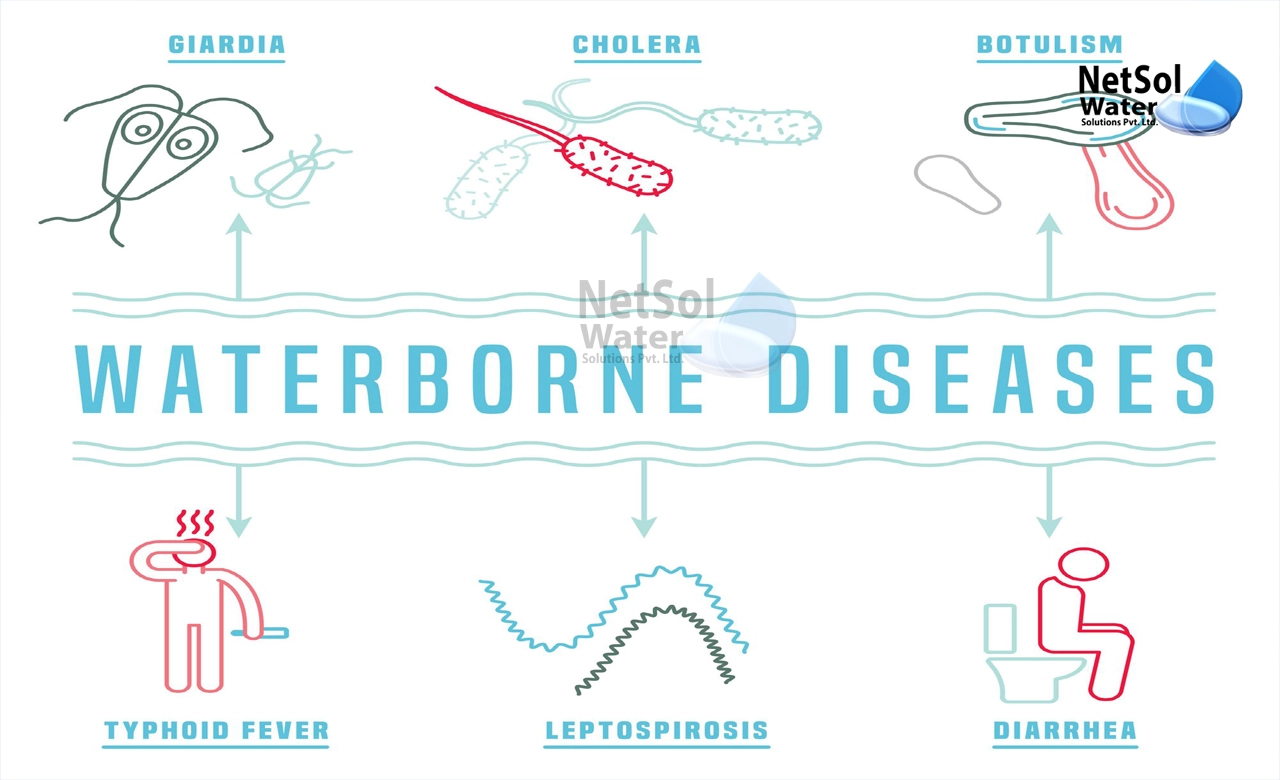
Gastrointestinal Issues:
Drinking water with high levels of impurities can cause gastrointestinal problems. Common symptoms include nausea, vomiting, abdominal cramps, and diarrhea. Chronic exposure to contaminated water can exacerbate these issues and lead to long-term health concerns.

Dental and Skeletal Issues:
High concentrations of minerals like fluoride or salinity in drinking water can adversely affect dental and skeletal health. Dental fluorosis, characterized by enamel discoloration, and skeletal fluorosis, causing joint and bone pain, are potential health issues.

Chemical Contaminants:
Exposure to chemical contaminants such as heavy metals (e.g., arsenic, lead) or industrial pollutants can lead to organ damage, developmental issues, and an increased risk of certain cancers.
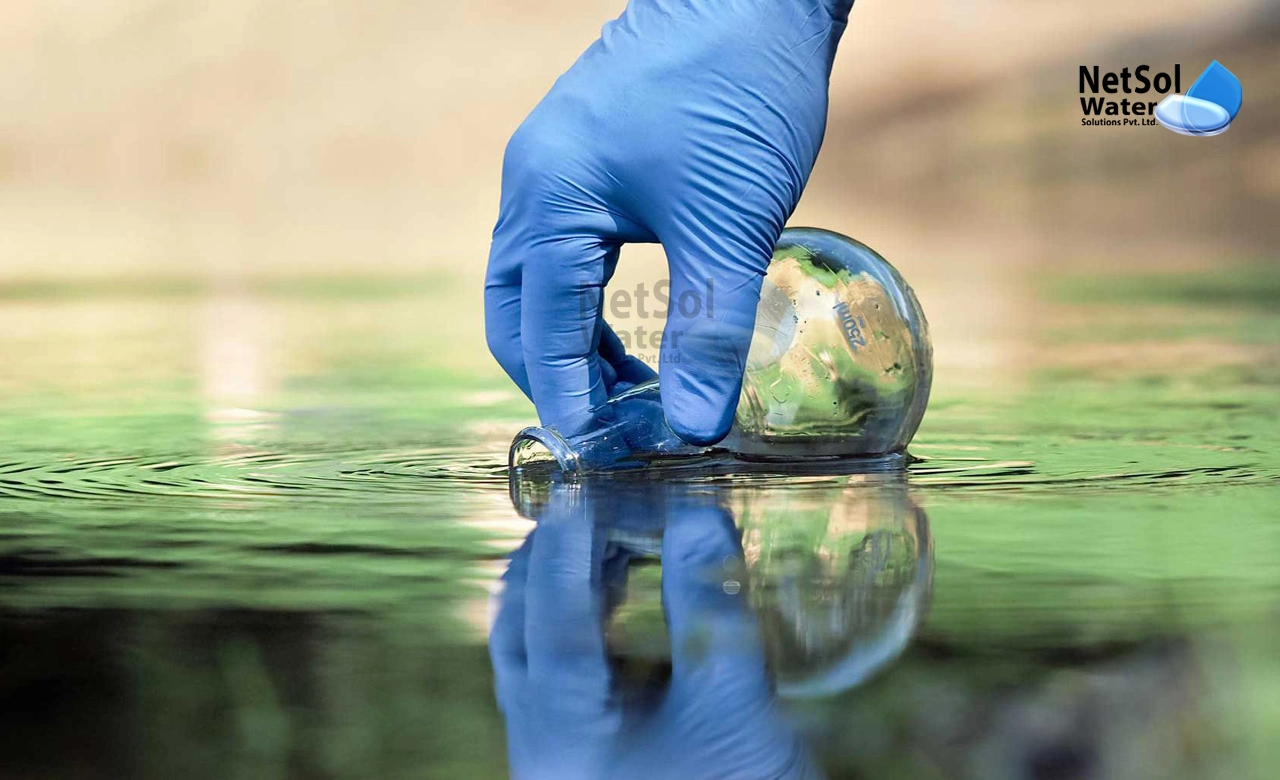
Impact on Vulnerable Populations:
Vulnerable groups, including children, pregnant women, and the elderly, are more susceptible to the health impacts of poor water quality. Children may experience stunted development, and pregnant women may face complications affecting both maternal and fetal health.
Increased Healthcare Burden:
Waterborne diseases and health issues related to poor water quality place a significant burden on the healthcare system. Increased hospital admissions and healthcare costs are often associated with water-related illnesses.
Why is Saudi Arabia water-polluted country?
Saudi Arabia's culture of water consumption is unsustainable due to practices like excessive water use, negligent water dispense management, unrestrained increase of population, and reckless agricultural policy. The country has relied heavily on desalination and treated wastewater to meet its water needs. The disposal of untreated or inadequately treated wastewater can contribute to water pollution. Additionally, industrial activities, oil production, and urbanization can also be potential sources of water pollution if proper environmental regulations and management practices are not in place.
What is the groundwater problem in Saudi Arabia?
Groundwater holds significant value as a vital resource, extensively utilized for drinking, domestic, agricultural, and industrial needs. On a global scale, Saudi Arabia stands out as one of the driest regions, facing challenges with limited water resources. The shallow groundwater in proximity to major cities in the Kingdom of Saudi Arabia is experiencing contamination due to the discharge of industrial effluents, the application of fertilizers in agriculture, and the release of domestic sewage in the region.
Over the last thirty years, the extraction of groundwater in the Kingdom of Saudi Arabia has risen significantly, reaching a volume of 17 billion cubic meters per year. In KSA, 80% of the demand for water supply is fulfilled by groundwater. The annual recharge of groundwater is notably lower than the rate at which it is withdrawn. The diminishing levels of groundwater also have repercussions on its quality.
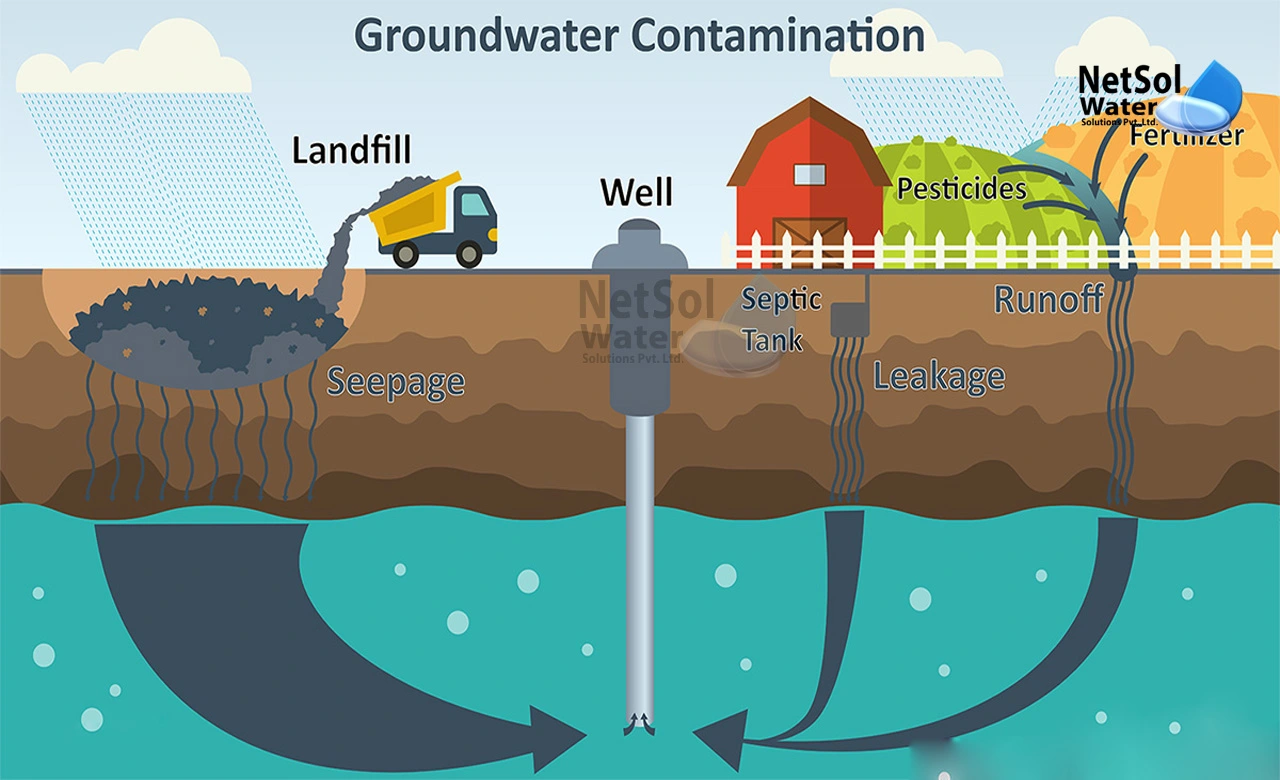
What is the main water quality problem in Saudi Arabia?
1- Water quality is assessed through various characteristics encompassing physical, chemical, biological, and aesthetic aspects. The primary objective is to ensure effective control of external factors that might compromise the quality of water. This is crucial to enable citizens to access clean drinking water for their sustenance.
2- Situated as a desert country spanning most of the Arabian Peninsula with extensive coastlines on the Red Sea and the Persian Gulf, the Kingdom of Saudi Arabia (KSA) faces distinctive challenges. The region experiences high levels of heat and humidity, intensifying the significance of water-related concerns.
3- The surrounding environment is predominantly sandy, posing challenges for agriculture and the maintenance of adequate water quality in Saudi Arabia. While a substantial amount of water is sourced from the sea, its high salt content renders it undrinkable. As one of the largest and rapidly growing expatriate countries, Saudi Arabia grapples with the challenge of providing sufficient potable water for its citizens.
What is the TDS level in water in Saudi Arabia?
TDS is a measure of the combined content of all inorganic and organic substances present in water in molecular, ionized, or micro-granular (colloidal sol) suspended form. It includes minerals, salts, metals, cations, and anions.
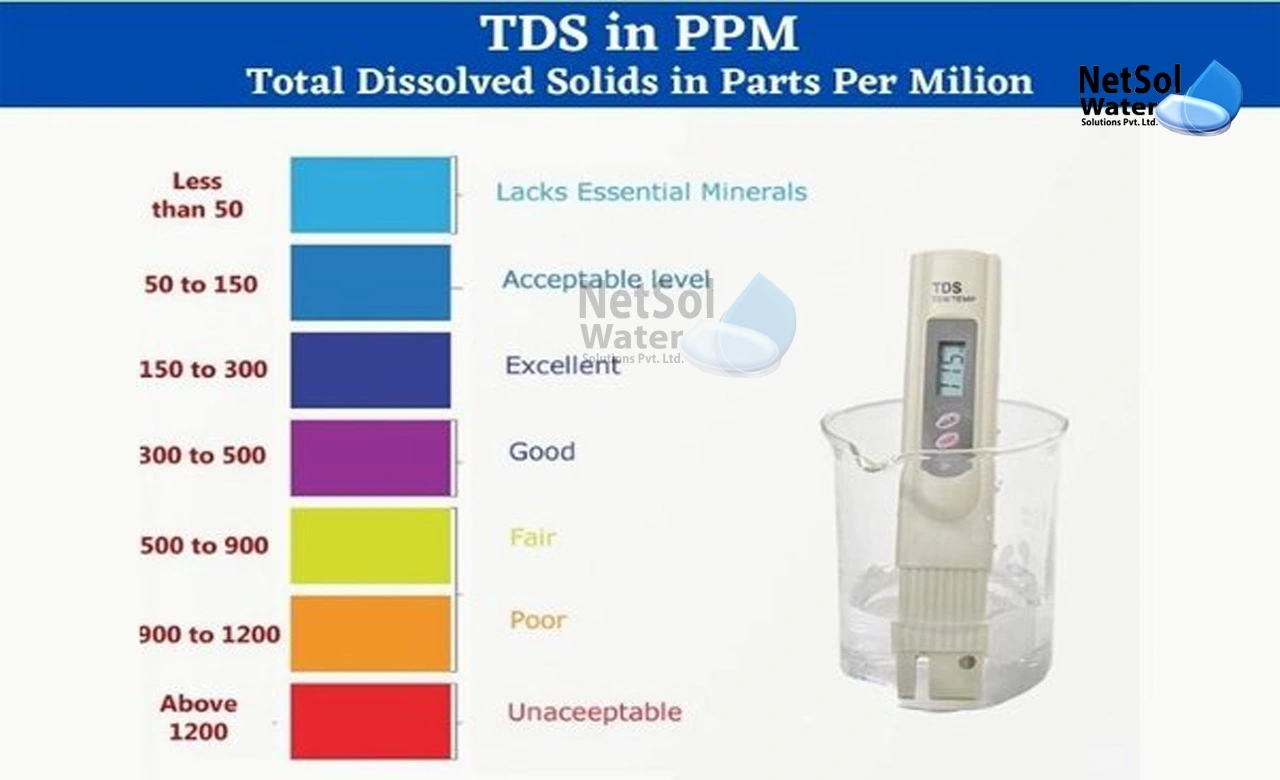
The quality of water from 388 wells in 6 regions in the Kingdom of Saudi Arabia has been investigated with respect to pH, total dissolved salts (TDS), nitrite, ammonium, nitrate, and faecal coliforms. Concentration of TDS varied widely, from 180 to 9350 mg L−1, with a mean of 754 mg L−1
What is the main source of water in Saudi Arabia?
The Kingdom of Saudi Arabia (KSA) heavily depends on groundwater and/or seawater desalination to meet its domestic water needs. Desalinated water undergoes several chemical processes, including the addition of specific minerals to the original saline water, resulting in its purification and making it safe for consumption.
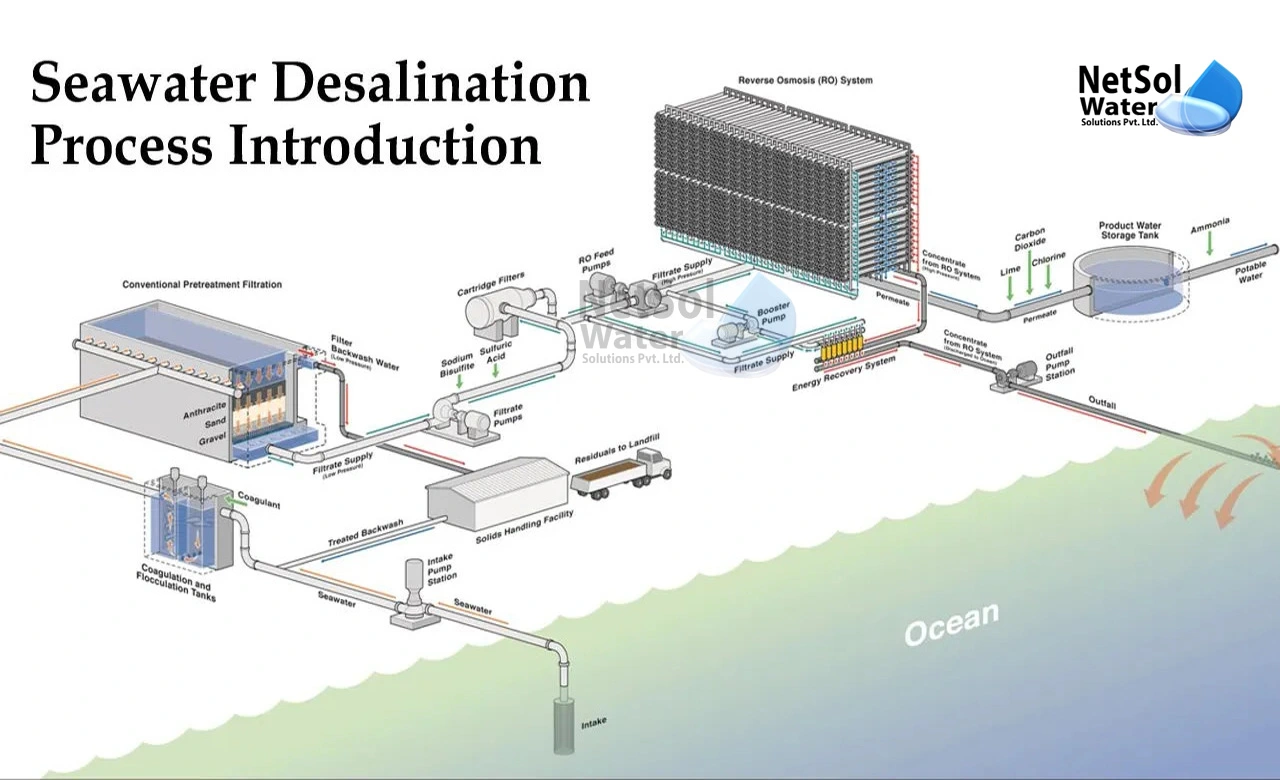
The Saline Water Conservation Corporation operates 27 stations dedicated to this process, collectively producing over three million cubic meters of potable drinking water.
Why waterlogging in Saudi Arabia?
Waterlogging in Saudi Arabia can occur due to various factors, and it is essential to consider the specific circumstances. Some potential reasons for waterlogging in certain areas of Saudi Arabia.
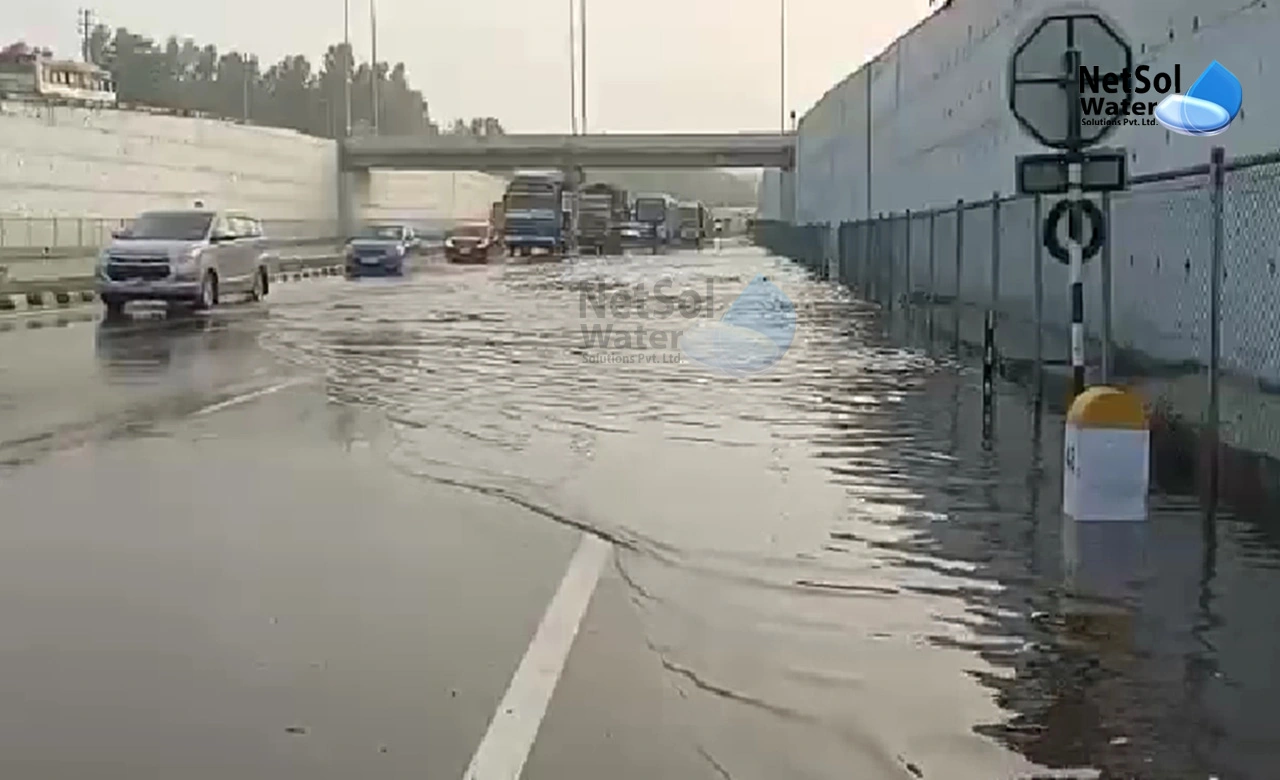
1- Infrastructure Issues: Poor drainage systems or inadequate infrastructure can lead to waterlogging. If the existing drainage systems are not designed to handle heavy rainfall or sudden downpours, water may accumulate in low-lying areas.
2- Urbanization and Impervious Surfaces: Rapid urbanization and increased construction of impervious surfaces, such as roads and buildings, can reduce the natural absorption of water into the ground. This can result in surface runoff, leading to waterlogging in certain areas.
3- Extreme Weather Events: Saudi Arabia, despite being a desert country, does experience occasional heavy rainfall and storms. These extreme weather events can overwhelm drainage systems and lead to waterlogging.
4- Groundwater Issues: In some cases, rising groundwater levels due to excessive extraction or natural factors can contribute to waterlogging. If the water table is high, it may lead to the saturation of the soil and surface waterlogging.
5- Lack of Sustainable Water Management: Inefficient water management practices, including over-irrigation in agricultural areas, can contribute to waterlogging. Improper water use and distribution can result in excess water that accumulates in certain regions.
6- Saltwater Intrusion: In coastal areas, the intrusion of saltwater into freshwater aquifers can impact the quality of groundwater. This can lead to the degradation of soil structure and increase the likelihood of waterlogging.
How drinking sewage water can affect human health in Saudi Arabia?
1- Waterborne diseases are illnesses transmitted through the consumption of water contaminated with pathogenic microorganisms. The primary mode of transmission for most waterborne diseases is the fecal-oral route. This occurs when individuals ingest human fecal material by consuming water or food that has been contaminated, often stemming from inadequate sewage management and improper sanitation practices. Bacteria, viruses, and intestinal parasites are common causative agents of waterborne diseases.
2- According to the World Health Organization (WHO), diarrheal disease accounts for an estimated 4.1% of the total daily global burden of disease and is responsible for the deaths of 1.8 million people every year. Further estimates suggest that 88% of that burden is attributable to unsafe water supply, sanitation and hygiene and is mostly concentrated on children in developing countries
Why there is no drainage system in Saudi Arabia?
In a study conducted in a rural area of the Asir region of Saudi Arabia by Omar et al. (18) stool samples were collected and examined for intestinal parasites. Overall, the prevalence rates of infection with the common waterborne parasites, Giardia lamblia and Entamoeba his to lytica were 18.9% and 9.2%, respectively.

What is the sewage treatment plant and how it is helpful to solve water issues in Saudi Arabia?
There are currently 33 wastewater treatment plants in operation with a combined capacity of 748 million cubic meters per year, and an additional 15 plants are currently under construction. A significant portion of the treated wastewater is being repurposed for various applications, including watering green spaces in urban areas for landscaping purposes, as well as for irrigation in agriculture and other diverse uses.
Sewage Treatment Plant
A sewage treatment plant is a facility designed to treat and process wastewater or sewage to remove contaminants and pollutants before discharging the treated effluent into the environment or returning it for reuse. The primary goal of a sewage treatment plant is to protect public health and the environment by treating sewage to a level that meets regulatory standards.

The process in a sewage treatment plant typically involves several stages:
1- Primary Treatment: In this phase, physical processes like screening and sedimentation are employed to remove larger solid particles and debris from the raw sewage.
2- Secondary Treatment: Biological processes are used to break down organic matter present in the sewage. Microorganisms, such as bacteria and protozoa, digest the pollutants, resulting in a reduction of organic content.
3- Tertiary Treatment (Optional): In some cases, additional treatment steps may be employed to further improve the quality of the effluent. This can include advanced filtration, chemical treatment, or other specialized processes.
4- Disinfection: Before discharge or reuse, the treated effluent undergoes disinfection to eliminate harmful microorganisms. Common disinfection methods include chlorination, ultraviolet (UV) radiation, or ozonation.
5- Sludge Treatment: Solid residues generated during the treatment process, known as sludge, undergo further treatment to reduce volume and stabilize the material. Sludge can be processed for safe disposal or used for beneficial purposes, such as agricultural fertilizer.
What kind of chemicals is used in STP plants to treat the water and does this chemical have impacts on human health?
Various chemicals are used in Sewage Treatment Plants (STPs) to facilitate the treatment of water and ensure the removal of contaminants. The specific chemicals used can vary based on the treatment processes employed and the characteristics of the wastewater. Common chemicals used in STPs include:
1- Coagulants: Such as aluminum sulfate (alum) or ferric chloride. Coagulants help in the clumping together of fine particles, facilitating their removal during the sedimentation process.
2- Flocculants: Such as polymers. Flocculants aid in the formation of larger particles (flocs) by promoting the aggregation of fine particles. This enhances their sedimentation and removal.
3- Disinfectants: Such as chlorine, ultraviolet (UV) light, or ozone. Disinfectants are used to kill or inactivate harmful microorganisms, ensuring that the treated water is safe for discharge or reuse.
4- pH Adjusting Agents: Such as lime or sulfuric acid. pH adjustment is essential to optimize the efficiency of various treatment processes and to meet regulatory standards.
5- Activated Carbon: Used for adsorption of organic compounds, odors, and color from the water.
6- Polyelectrolytes: These are often used to enhance solid-liquid separation processes.
It's important to note that when used appropriately and by regulatory guidelines, the concentrations of these chemicals in the treated water are typically well below levels that would cause harm to human health. Additionally, many treatment processes lead to the removal or degradation of these chemicals, minimizing their presence in the final treated water.
However, improper handling, excessive use, or inadequate treatment processes can potentially lead to residual concentrations of certain chemicals in the treated water. Regular monitoring and adherence to safety guidelines are important to ensure that the treated water meets quality standards and poses no risk to human health.
What is the need to install the STP plants and What area is required to install the STP plants?
STP (Sewage Treatment Plant) installation is important for several reasons:
1- Environmental Protection: STP plants treat sewage and wastewater to remove pollutants and contaminants before discharge. This helps in protecting the environment by preventing the contamination of water bodies such as rivers and lakes.
2- Public Health: Untreated sewage can contain harmful pathogens and chemicals that pose serious health risks. Installing STP plants ensures that the water released into the environment is safe and does not pose a threat to public health.
3- Compliance with Regulations: Many countries and regions have strict environmental regulations that mandate the treatment of sewage before its discharge. Installing STP plants helps industries and municipalities comply with these regulations and avoid legal consequences.
4- Water Conservation: Treating sewage allows for the potential reuse of water for non-potable purposes like irrigation, industrial processes, or even certain types of cleaning. This contributes to water conservation efforts.
The area required to install an STP plant depends on various factors such as the capacity of the plant, the treatment technology used, and local regulations. Small-scale STP plants for individual households or communities might require less space, while larger municipal or industrial STP plants can cover extensive areas. The space requirement also considers factors like the layout of the treatment units, settling tanks, aeration tanks, and other necessary infrastructure.
How to choose the best sewage treatment plant manufacturer in Saudi Arabia?
Choosing the best sewage treatment plant manufacturers in Saudi Arabia is a careful consideration of various factors to ensure that the selected provider meets your specific requirements and regulatory standards.
1- Research and Identify Options:
Conduct thorough research to identify sewage treatment plant manufacturers in Saudi Arabia. Utilize online resources, industry directories, and seek recommendations from professionals in the field.
2- Experience and Reputation:
Consider the manufacturer's experience in designing and supplying sewage treatment plants. Look for companies with a proven track record, successful project implementations, and positive client feedback. Check for reviews and testimonials.
3- Compliance with Standards:
Ensure that the manufacturer complies with local and international standards for sewage treatment. The sewage treatment plant should meet or exceed the regulatory requirements set by Saudi Arabian authorities.
4- Technology and Innovation:
Adopt the technology and innovation incorporated into the sewage treatment plants offered by the manufacturer. Choose a provider that utilizes advanced and efficient treatment technologies for optimal results.
5- Customization and Scalability:
Inquire about the manufacturer's ability to customize sewage treatment plants based on your specific project requirements. The system should be scalable to accommodate future expansions if needed.
6. Modularity and Ease of Installation:
Look for a manufacturer that offers modular sewage treatment plant designs. Modular systems are often quicker to install and allow for flexibility in adapting to changing conditions.
7- Quality of Components:
Investigate the quality of materials and components used in the sewage treatment plant. High-quality components contribute to the system's reliability and longevity.
8- Maintenance and Support:
Inquire about the manufacturer's maintenance services and support offerings. A reliable provider should offer comprehensive maintenance plans, operator training, and responsive customer support.
9- Energy? Efficiency:
Consider the energy efficiency of the sewage treatment plant. A system that minimizes energy consumption contributes to cost savings and environmental sustainability.
10. Cost and Budget Considerations:
Obtain detailed cost estimates from potential manufacturers, considering not only the initial purchase cost but also long-term operational and maintenance expenses. Ensure the proposed solution fits your budget.
11- Local Presence and Support:
Consider the manufacturer's local presence in Saudi Arabia. Having local offices or representatives can facilitate quicker response times, spare parts availability, and easier coordination.
12. Certifications and Awards:
Check for relevant certifications and industry awards. Certifications demonstrate a commitment to quality and adherence to environmental standards.
By thoroughly evaluating these factors, you can make an informed decision when selecting a sewage treatment plant manufacturer in Saudi Arabia. It's essential to choose a provider that aligns with your project's technical requirements, regulatory compliance needs, and long-term sustainability goals.
Sewage Treatment Plant Manufacturers In Saudi Arabia
1- Netsol Water:
Netsol Water is a multinational company with expertise in water and wastewater treatment. They provide a range of solutions for sewage treatment, including biological treatment and membrane technologies. Netsol Water has done many projects in Nepal, Afghanistan and other countries. Netsol has more than two decades of experience in manufacturing of water treatment equipment.
2- Sewage Treatment Plant:
Sewage Treatment Plantis a global environmental services company offering wastewater treatment solutions. They are known for their expertise in water management and sustainable solutions.
3- Compact STP Plant:
Compact STP Plant provides water and wastewater treatment solutions, including advanced technologies for sewage treatment. They offer a range of products and services for industrial and municipal applications.
4- Aquatech:
Aquatech specializes in water purification and wastewater treatment solutions. They provide solutions for both industrial and municipal wastewater treatment.
5- Xylem Inc.:
Xylem is a global water technology company offering solutions for water and wastewater treatment. They provide various technologies for sewage treatment plants.
Netsol Water is Greater Noida-based leading water & wastewater treatment plant manufacturer. We are industry's most demanding company based on client review and work quality. We are known as best commercial RO plant manufacturers, industrial RO plant manufacturer, sewage treatment plant manufacturer, Water Softener Plant Manufacturers and effluent treatment plant manufacturers. Apart from this 24x7 customer support is our USP. Call on +91-9650608473, or write us at enquiry@netsolwater.com for any support, inquiry or product-purchase related query.



